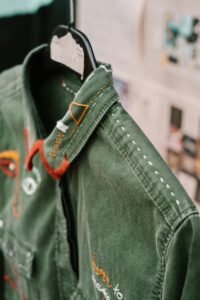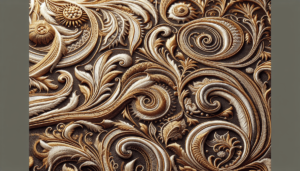Why Embroidery Is Ideal For Creating High-End, Luxury Apparel
Have you ever found yourself marveling at the intricate designs on a high-end garment and wondered why embroidery seems to be a staple in luxury fashion? It’s fascinating to think about, isn’t it? From the meticulous craftsmanship to the timeless elegance, there’s something inherently opulent about embroidered apparel. Let’s dig into why embroidery stands out as the ideal medium for creating high-end, luxury clothing.
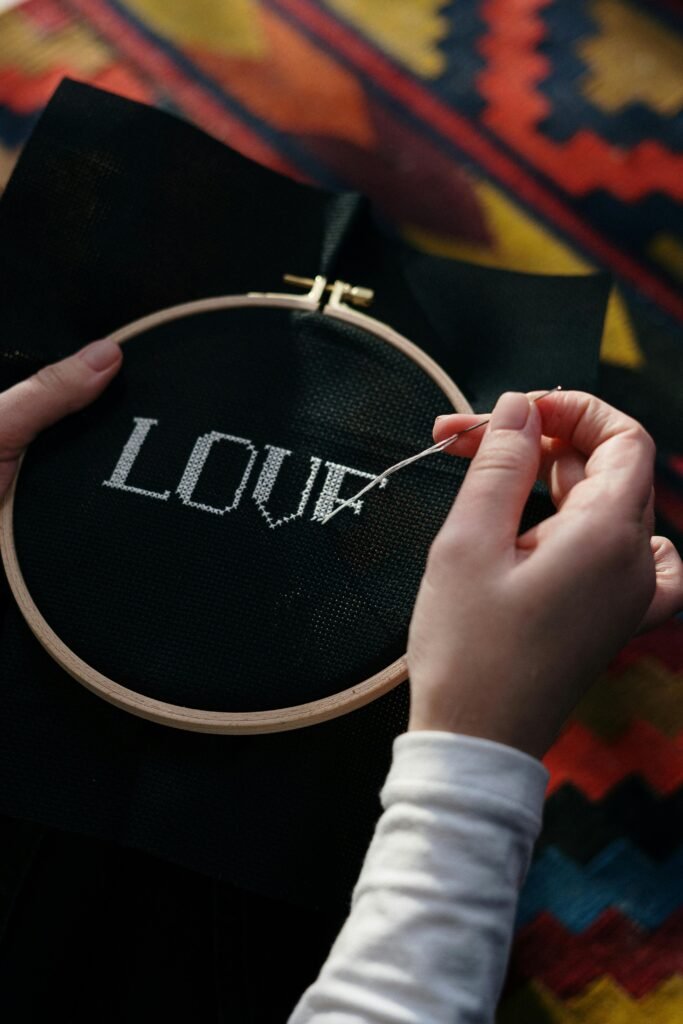
This image is property of images.pexels.com.
The Art of Embroidery: A Touch of Elegance
Embroidery isn’t just a technique; it’s an art form that has been cherished for centuries. It’s no wonder why designers and fashion houses continue to lean on it to make luxurious statements.
A Rich History
The origins of embroidery go way back, practically to the dawn of civilization. Remember those ancient tapestries in museums? Yep, they’re examples of early embroidery. Cultures worldwide—from China to Persia to Europe—have historically used this technique for embellishing garments, signifying wealth, status, and even storytelling.
Timeless Appeal
One of the most alluring aspects of embroidery is its timelessness. Fashion trends come and go, but embroidery remains a constant. Think of it as the little black dress of garment embellishments—always in style and always sophisticated.
Quality Over Quantity: The Labor of Love
If you’ve ever tried your hand at embroidery, you’ll know that it requires painstaking attention to detail. This level of effort is why embroidered pieces are often considered high-quality and luxurious.
Hand vs. Machine Embroidery
While machine embroidery has made the process faster, hand embroidery remains the gold standard for high-end fashion.
| Hand Embroidery | Machine Embroidery |
|---|---|
| Time-consuming but offers superior detail | Faster and more consistent |
| Highly customizable | Suitable for larger quantities |
| Adds a personalized touch | Ideal for uniform patterns |
In high-end apparel, hand embroidery is often favored because it offers an unmatched level of detail and craftsmanship.
Labor-Intensive Process
The amount of labor that goes into creating a single embroidered garment can’t be overstated. The meticulous selection of threads, the careful planning of stitches—all these contribute to a piece’s luxurious feel. It’s little wonder that these garments command a higher price point.
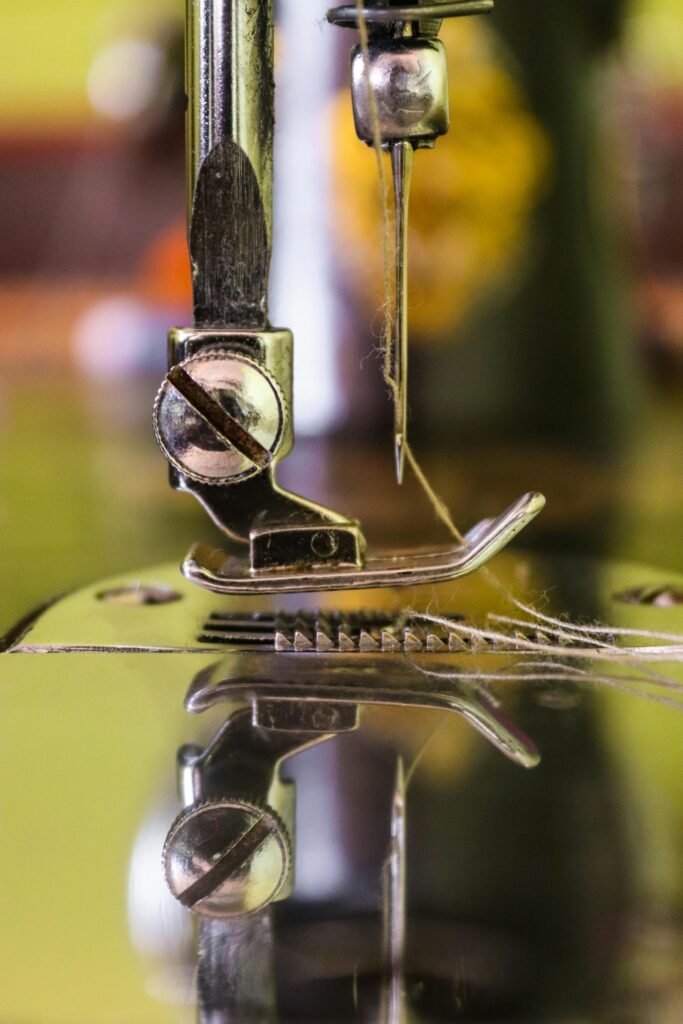
This image is property of images.pexels.com.
Unique Designs: One-of-a-Kind Creations
Let’s face it: in our age of mass production, uniqueness is a rare commodity. That’s another reason why embroidery is a darling of luxury fashion—it allows for highly unique and customized designs.
Personalization and Customization
Embroidery offers a breadth of options for personalization that few other techniques can match. Monograms, bespoke designs, or even intricate family crests can be effortlessly added to garments, making each piece truly one-of-a-kind.
Designer Creativity
For fashion designers, embroidery acts as a canvas for their creativity. The ability to experiment with different stitches, colors, and textures opens up endless possibilities for creating awe-inspiring pieces.
Symbol of Status and Wealth
Ever considered why a simple embroidered logo or motif can elevate a piece of clothing into luxury territory? It’s because embroidery is often associated with status and wealth.
Historical Significance
In ancient times, embroidered clothing was reserved for the elite—kings, queens, and nobility. Fast forward to today, and the association with affluence remains intact. An embroidered emblem on a polo shirt or a designer handbag can instantly signify high status.
Modern Perception
Even in contemporary fashion, a garment with intricate embroidery denotes luxury. Brands that incorporate embroidery into their collections are often viewed as upscale, catering to discerning customers who appreciate the finer things in life.
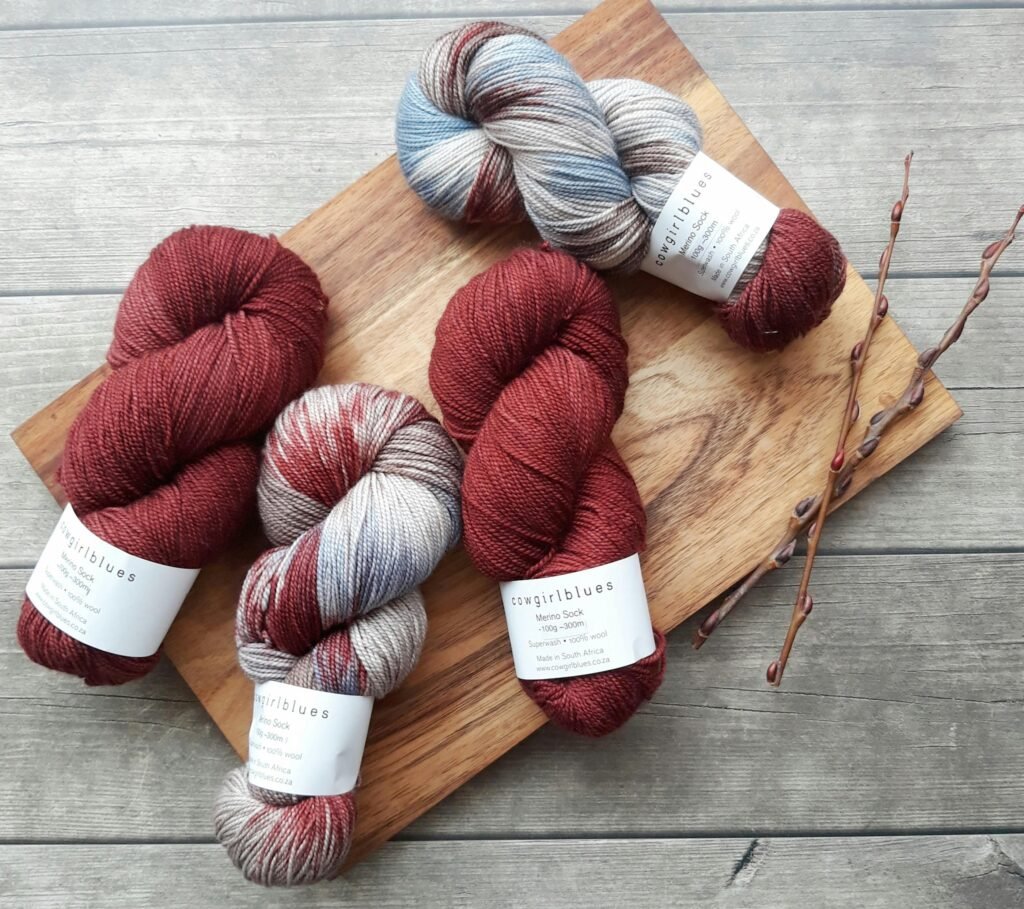
This image is property of images.pexels.com.
Durability: Built to Last
You’ve probably heard the phrase “built to last” thrown around, but in the context of embroidery, it’s spot-on. High-quality embroidered garments are incredibly durable.
High-Quality Materials
When we talk about embroidered high-end apparel, we’re usually referring to pieces made with top-notch materials. Think silk, velvet, and high-grade cotton. These fabrics are not only luxurious but also durable, making them perfect companions for intricate embroidery.
Long-Lasting Designs
The tight, secure stitches used in high-quality embroidery mean that the designs are built to endure. Unlike printed designs that may fade over time, embroidered patterns maintain their beauty and integrity.
Versatility: Suitable for Various Fabrics
Don’t you love a technique that’s versatile enough to adapt to different scenarios? Embroidery fits the bill perfectly, effortlessly adapting to a variety of fabrics and contexts.
Suitable Fabrics for Embroidery
While some fabrics are more commonly associated with embroidery, the technique can be applied to a wide range of materials.
| Fabric | Characteristics |
|---|---|
| Silk | Smooth, luxurious, and ideal for detailed embroidery |
| Cotton | Durable and versatile, good for everyday wear |
| Velvet | Rich, textured surface, great for luxurious looks |
| Denim | Heavy-duty, often used for casual luxury |
| Linen | Breathable, light, and perfect for summer garments |
Seasonal Adapatability
Embroidery is also a year-round affair. Whether it’s lightweight linen for summer or rich velvet for winter, embroidered pieces can be tailored to suit any season. This adaptability adds to its appeal in luxury fashion.
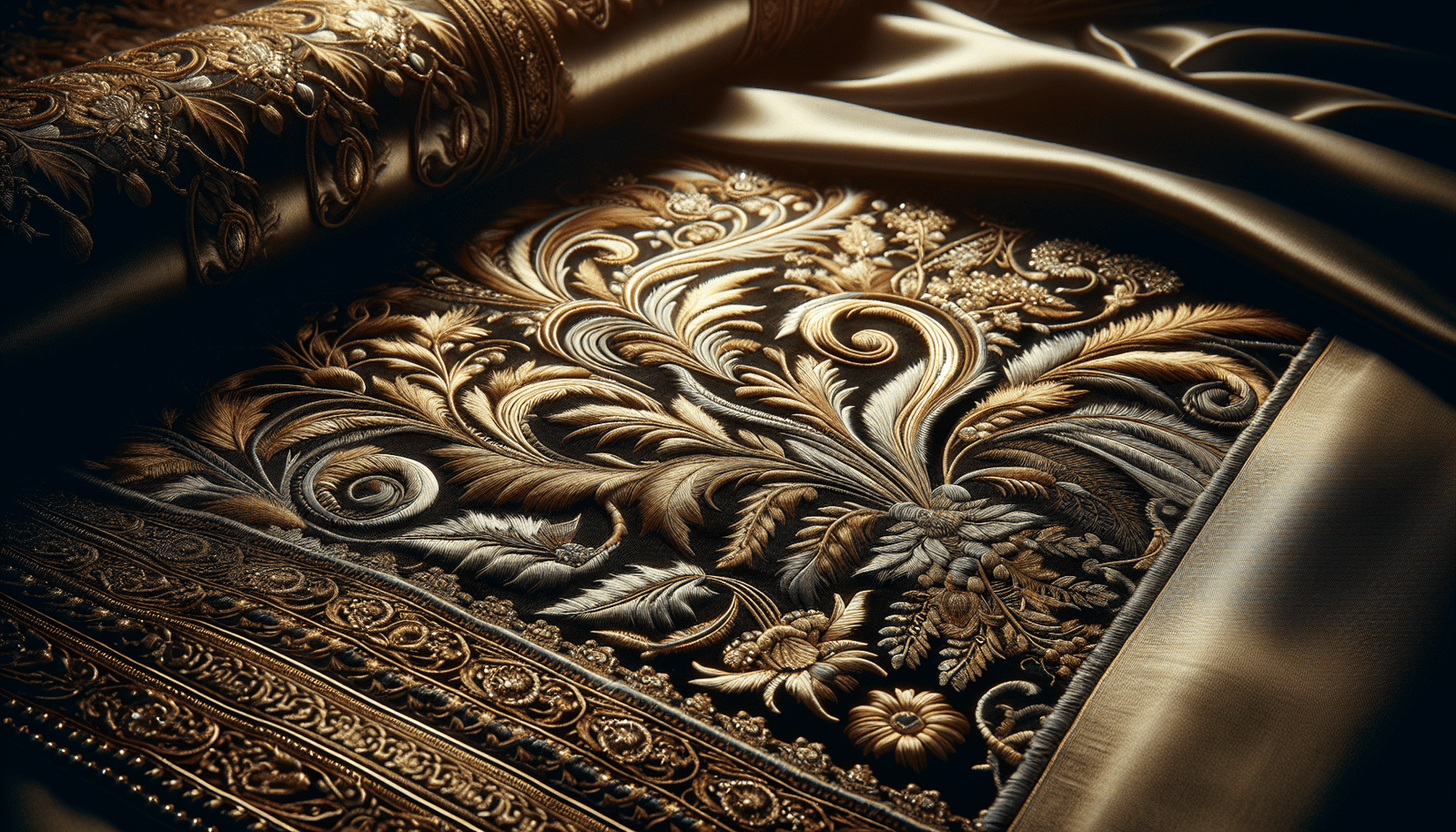
A Sustainable Choice
When we talk about high-end fashion, sustainability might not always be the first thing that comes to mind. However, embroidery is increasingly being recognized as a sustainable choice.
Waste Reduction
Unlike other embellishment methods that may involve significant waste, embroidery is relatively eco-friendly. Any leftover thread can often be reused, and the process generates minimal waste, particularly when done by hand.
Long-Lasting Garments
The focus on durability means embroidered garments are less likely to end up in landfills. When people invest in high-quality pieces, they’re more likely to hold onto them, reducing the churn of fast fashion and promoting a more sustainable wardrobe.
Emotional Connection: More Than Just Clothing
Sometimes, clothing is more than just fabric and thread—it’s an expression of identity and a source of emotional comfort. Embroidery often adds an emotional dimension to fashion.
Personal Significance
The time and effort that go into creating an embroidered piece can make it incredibly special, whether it’s passed down as an heirloom or customized to commemorate a significant event. These garments often have stories attached to them, adding a layer of sentimental value.
Artisan Connection
When you wear an embroidered garment, you’re also wearing a piece of the artisan’s skill and dedication. This connection to the creator adds a unique emotional value that mass-produced items simply can’t provide.
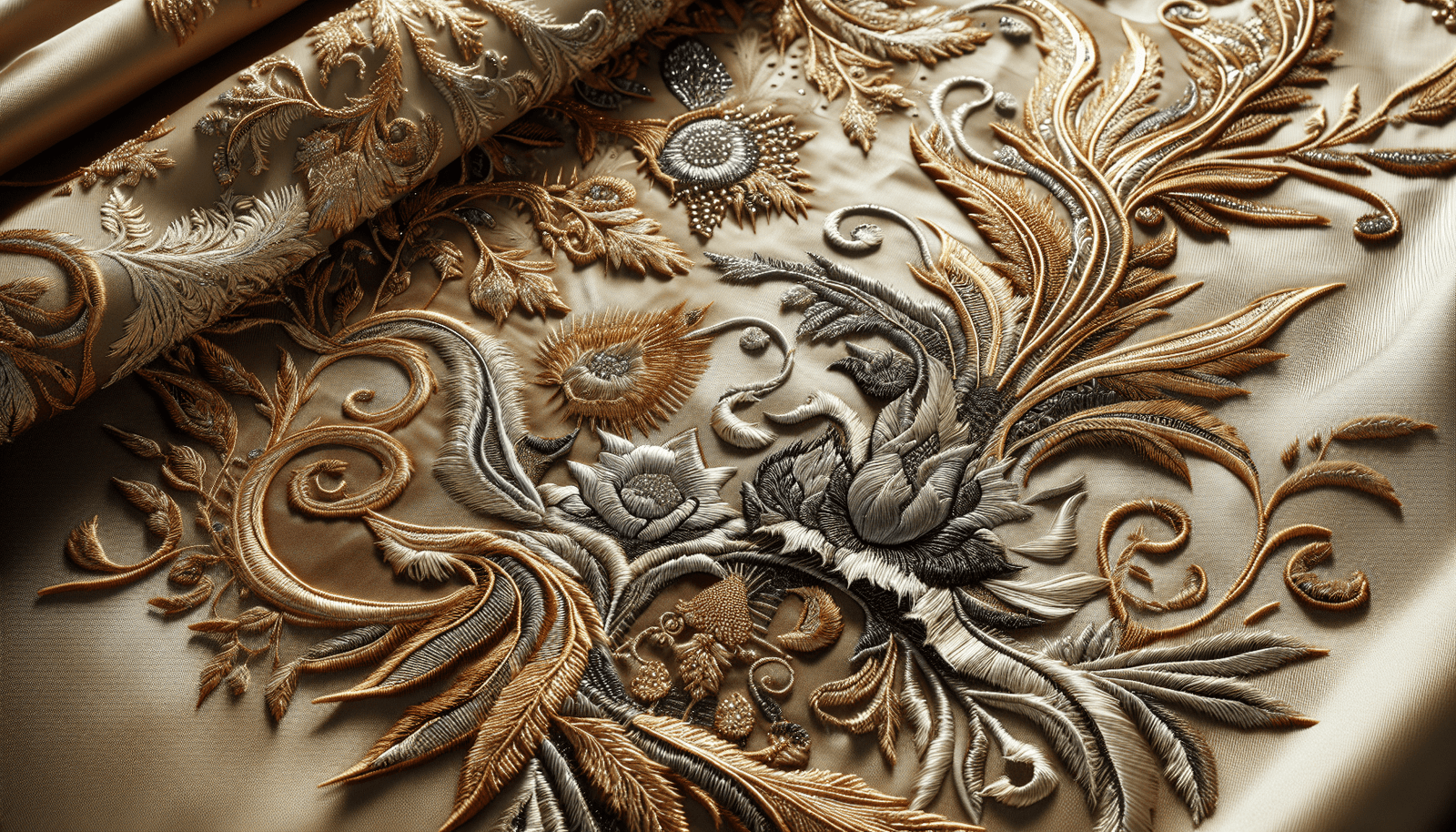
The Role of Technological Advancements
While traditional hand embroidery remains cherished, technological advancements have brought machine embroidery into the luxury realm, offering precision and speed without compromising on quality.
Modern Machine Embroidery
Today’s embroidery machines are far more sophisticated than their predecessors, capable of producing highly intricate designs that rival hand embroidery in detail and quality.
Artistic Flexibility
Modern technology also allows designers to experiment with digital patterns and computerized designs. This adds another layer of creativity, enabling the production of unique and luxurious pieces that are both visually stunning and meticulously crafted.
Cost Factors: Worth Every Penny
You might wonder why embroidered garments often come with higher price tags. It boils down to the multiple factors that contribute to the overall cost, all of which are justified when you consider what you’re getting.
Material Costs
High-quality threads, special needles, and premium fabrics—all these materials come at a higher cost, contributing to the final price of the garment.
Labor Costs
The painstaking effort that goes into each piece requires skilled artisans who command higher wages for their craft. When you pay for an embroidered garment, you’re investing in the time, skill, and dedication that goes into creating it.
The Future of Embroidery in Luxury Fashion
So, where is embroidery headed in the world of high-end fashion? If current trends are any indication, it’s only going to get more popular.
Embracing Innovation
While traditional techniques will always have their place, more and more designers are incorporating modern methods and materials. This fusion of old and new can produce innovative pieces that push the boundaries of what we think of as luxury apparel.
Expanding Horizons
The rise of sustainable and ethical fashion also means that embroidery may become even more integral to luxury clothing. As consumers increasingly value unique, high-quality, and eco-friendly products, the demand for embroidered garments is likely to grow.
Personalized Experiences
Expect to see more personalized and bespoke embroidery options, with brands offering customers the opportunity to co-create their own designs. This trend towards customization adds another layer of luxury, making each piece truly unique.
Wrapping It All Up
There you have it. Embroidery’s rich history, meticulous craftsmanship, and unique versatility make it the ideal choice for high-end, luxury apparel. The combination of durability, sustainability, and emotional significance elevates embroidered garments beyond mere fashion statements, making them timeless treasures. Whether it’s the hand-stitched details or the personalized designs, embroidery offers a level of opulence that is hard to match.
So next time you see an elegantly embroidered piece, you’ll know there’s more to it than meets the eye—it’s a labor of love, a work of art, and a true symbol of luxury.

